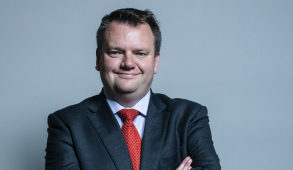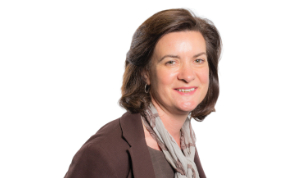Covid-19 update: 4 June
Over three-quarters of UK adults – a total of 40 million people – have now received a first dose of vaccine, with 26 million people (50% of adults) having received both doses. The government pointed at YouGov data showing the UK continues to top the list of nations where people are willing to have a Covid vaccine or have already been vaccinated.
The UK now has four vaccines approved for use after the Janssen single dose Covid-19 vaccine was authorised for use by the UK medicines regulator. And health secretary Matt Hancock this week said that vaccine procurement work continued to keep the programme one step ahead of the virus. As an example, he said that commercial negotiations were underway with AstraZeneca to secure a variant vaccine adapted to tackle the B1.351 variant first identified in South Africa.
According to Public Health England’s latest vaccine surveillance report, more than 75% of the adult population now have antibodies to Covid-19 from either infection or vaccination, based on antibody testing of blood donors. This compares to nearly 16% that have antibodies from infection alone. Over 97% of adults aged 50 or older have antibodies from either infection or vaccination. It said the latest estimates suggest that the vaccination programme has averted over 39,000 hospitalisations and over 13,000 deaths in older adults.
While there are no arguments about the success of the vaccine programme, other aspects of the government’s response to Covid-19 continue to attract criticism. This week, the focus was education with the government announcing a £1.4bn investment to boost recovery. £1bn will support up to six million, 15-hour tutoring courses for disadvantaged school children, while £400m will be targeted at teacher training and support and enable some year 13 students to repeat their final year.
While the government claimed this built on earlier funding of £1.7bn to support catch-up, it was widely criticised as insufficient. The National Association of Head Teachers described the announcement as a ‘damp squib’ and the funding was ‘paltry’ compared with the amounts other countries have invested. ‘Education recovery cannot be done on the cheap,’ said the union’s general secretary Paul Whiteman.
And in an embarrassing move for the government, its education recovery commissioner for England Kevan Collins resigned, saying the funding fell far short of what was needed. The government also continues to face criticism over its border control policy – having been accused of being slow to close borders throughout the pandemic.
Amber concern
Labour’s shadow home secretary Nick Thomas-Symonds (pictured) repeated his party’s calls for the current traffic light system to be scrapped. He highlighted reports of border forces struggling to process rising passenger numbers. Ongoing confusion over the amber list was ‘resulting in far too many people still travelling to Covid hotspots and mixing at airports, further increasing the risk of variants reaching the UK,’ he said. ‘Ministers need to scrap the amber list urgently, to limit travellers reaching the UK and ensure that the border force have the resources they need to manage arrivals from the green list safely.’
On Thursday, the government moved Portugal from its green list (okay to visit and no quarantine restrictions on return) to the amber list, effective from 8 June. Portugal was one of the only countries on the 12-strong green list that was accepting visitors from the UK. Transport secretary Grant Shapps said it was a safety-first approach taking account of a doubling of positivity rates in the country since the previous travel review.
Back in the UK, there are also signs that the virus is on the increase again, although this was expected to some degree after the easing of restrictions in May. The latest seven-day average puts the daily reported cases at over 3,800. And 5,274 cases were reported on Thursday. However, at the national level, it is not obvious that this has translated into hospitalisations. Nationally reported daily admissions continue to hover around the 100-125 mark, although crucially figures on the government’s Covid-19 dashboard lag reported infections by nearly a week. And the number in hospital beds remains just over 900.
There remains nervousness about the possibility of a third wave in general and the more transmissible B.1.617.2 variant – now known as Delta after the World Health Organization unveiled a new naming system for variants – becoming dominant. Former chief scientific adviser Mark Walport described the situation in the UK as ‘very delicately balanced’, with more data needed before the prime minister could take a decision on the continued easing of restrictions currently planned for later this month.
Delta increases
According to Public Health England, looking at cases that have been confirmed through genomic sequencing, there were 5,472 confirmed new cases of the Delta variant in the week to 26 May, compared with 3,720 for the previously dominant B.1.1.7 Alpha variant. And a separate report from Public Health England states that ‘early data from both England and Scotland suggest an increased risk of hospitalisation with Delta compared to Alpha’, although confirmatory analyses are required.
Neil Ferguson, epidemiologist at Imperial College London told BBC Radio 4’s Today programme that the best estimate was that the Delta variant could be 60% more transmissible than the Alpha variant. He added that there was some uncertainty around this figure with the range potentially stretching from about 30% up to 100% more transmissible.
More generally, the weekly report from NHS Test and Trace in England reported a 22% increase in the number of people testing positive for coronavirus – up to 17,162 in the week to 26 May (reflecting cases a week older than the more up-to-date government dashboard). This is the highest weekly number for positive tests since the middle of April and is based on 4.5 million tests.
The 13,644 cases transferred to the contact tracing system also represented a 26% increase on the previous week, bucking the general trend since January of decreasing case transfers. These cases led to just over 49,000 close contacts being identified and 85% of these were reached by the service.
Layla McCay (pictured), director of policy at the NHS Confederation said the ‘continuing and worrying rapid rise’ in cases should be considered when the government takes decisions about whether to slow or pause the timeline for further lifting of restrictions.
‘Health leaders are clear that a new wave of infections must be avoided or at least mitigated, as it could lead to more serious illness and more hospital admissions, which in turn could hamper efforts to restore services and clear the enormous treatment backlogs,’ she said. While the vaccination programme had helped to put the country in a much better position, half the adult population had yet to receive two doses of a vaccine.
‘There is still a long way to go and now is the time to take action to prevent harmful consequences further down the line,’ she added.
NHS Providers chief executive Chris Hopson echoed these comments, insisting the NHS was still under intense pressure. ‘While the number of people being admitted with Covid-19 is lower than at earlier points in the pandemic, the threat from new variants is real and the NHS is also addressing a huge treatment backlog,’ he said. ‘Even a small increase in Covid-19 patients would make a real difference to the speed in which they are recovering.’
The Independent Sage advisory body was much more insistent claiming that, with real concerns about the Delta variant, ‘as things stand it is very difficult to justify progressing with the last stage of the roadmap, scheduled for 21 June, a point that should be made now to modify current false hopes.
In Wales, a further £32m is being invested to extend its contact tracing service to March 2022. A year on from the launch of Test, Trace, Protect, the government said it had reached 99.7% of the positive cases that were eligible for follow-up – and successfully contacted almost 95% of close contacts. Health and social services minister Eluned Morgan (pictured) said the service had been ‘extremely effective’ and was ‘critical to stopping the virus spreading in our communities’.
The government pointed at earlier research suggesting the service had reduced the reproduction number R number from around 1.7 to 1.3 when transmission was high last year. ‘Using the more recent R number and improvements to monitoring, its impact may be to reduce R from 1.3 to 0.8,’ it said.
The latest figures for the R number across the UK are: Scotland, 1 to 1.3; Northern Ireland 0.8 to 1.1; Wales 0.8 to 1; England 1 to 1.1.
New path to normality
Scotland’s first minister Nicola Sturgeon said the Scottish government believed ‘vaccinations are opening the path to a less restrictive way of dealing with Covid – one that is less driven by case numbers’. However not all adults have been vaccinated and the country is also dealing with a new, fast spreading variant. This meant ‘erring on the side of caution’.
The newly named Delta variant is making up ‘well over half’ of Scotland’s new daily cases’ and the R number is ‘almost certainly above 1’. On the plus side, she said there was evidence that the link between cases and serious illness, hospitalisation and deaths is weakening. The time people are spending in hospital has also reduced.
And she added that ‘protecting the NHS’ was now not just about preventing it from being completely overwhelmed, but about protecting its ability to get services back to normal. The fact that the NHS had ‘coped’ earlier in the year during the second wave should not be the benchmark.
On the back of this analysis, she applied the brakes to planned easing of restrictions. While Glasgow will move down to level 2 of the country’s five-tier system of coronavirus restrictions, 13 council areas will stay in level 2 rather than a planned move to level 1. This will leave nearly 3 million Scots subject to level 2 restrictions. Some areas will continue with a move to level 1 – enabling eight people from three households to meet indoors – and some of the island communities will move to level zero.
In Wales, first minister Mark Drakeford announced a phased move to its level 1, the lowest of four alert levels. This means from Monday, up to 30 people will be able to meet outdoors and large outdoor activities will be able to take place. The size of extended households can be increased up to three households and a further household with a single adult or single adult with caring responsibilities will also be able to join. The two-stage approach will see outdoor events opening first with a subsequent review, ahead of 21 June, determining whether indoor events can restart.
Looking more globally, health ministers from G7 nations met ahead of next week’s G7 leaders’ summit. The health ministers were meeting to agree a new international approach to improve the early identification of animal and environmental health to prevent diseases from spreading. Addressing the meeting World Health Organization director general Tedros Ghebreyesus again drew attention to the inequitable distribution of vaccines across the world. This had allowed the virus to keep spreading, increasing the chances of a variant emerging that renders vaccines less effective, he said.
‘Inequitable vaccination is a threat to all nations, not only those with the fewest vaccines,’ he said, repeating his call to vaccinate at least 10% of the population of all countries by the end of September and at least 30% by the end of the year. And he added that an international treaty on pandemic preparedness and response was ‘an idea whose time has come’.
Related content
We are excited to bring you a fun packed Eastern Branch Conference in 2025 over three days.
This event is for those that will benefit from an overview of costing in the NHS or those new to costing and will cover why we cost and the processes.